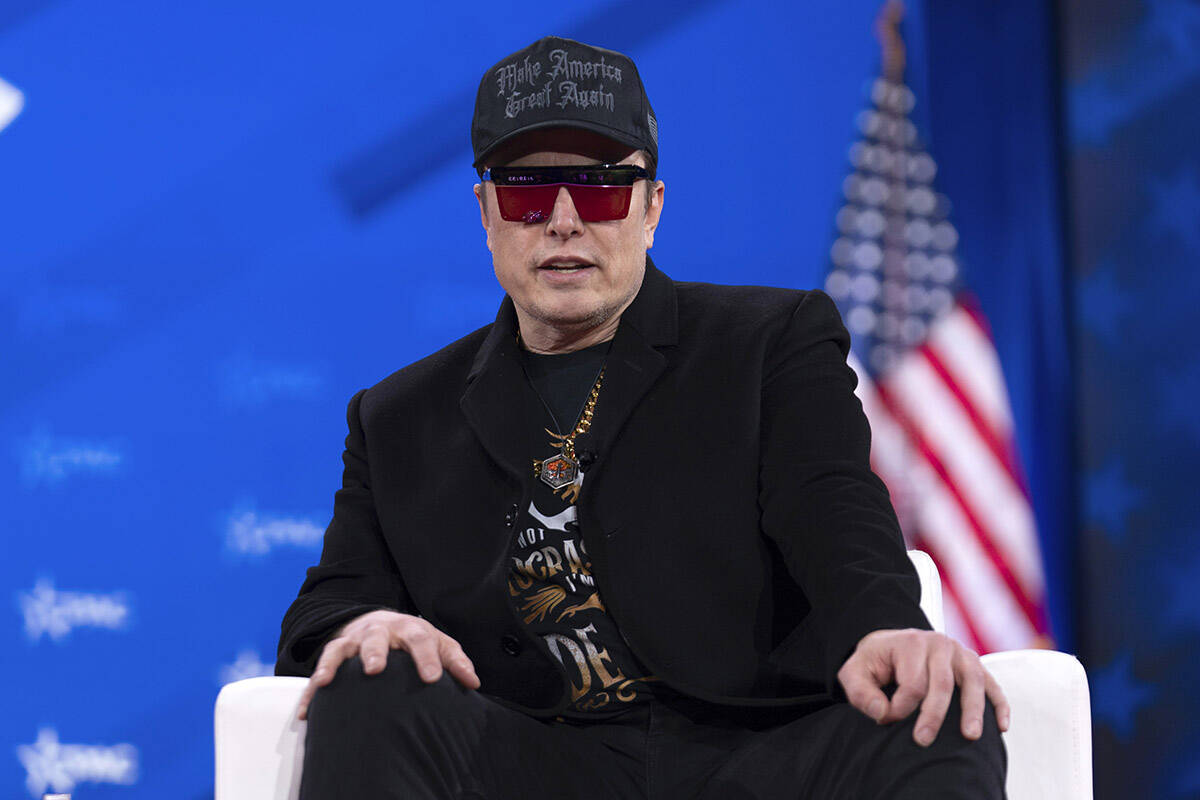Trump’s DOGE-led cuts target Nevada’s Native American services
An Indian Health Service center and Bureau of Indian Affairs location in Elko are the latest targets of the Trump administration’s efforts to cut federal spending.
The Department of Government Efficiency, also known as DOGE, is led by Tesla CEO Elon Musk. Its goal of trimming federal spending has spurred layoffs and closure announcements across the federal workforce in the first few weeks of the second Trump administration. An auxiliary Social Security office in Las Vegas is among those impending closures, and Nevada federal employees have also been terminated.
Next on the list may be two offices that provide tribal services in Elko.
DOGE’s website lists an Indian Health Service location and a Bureau of Indian Affairs office as subjects to “termination via Mass Mod.” It estimates the cuts would generate over $405,000 in combined savings.
“By cutting these programs, they’re not fulfilling the obligation to the tribe,” said Leah Brady, chairperson of the Elko Band Council of the Te-Moak Tribe of Western Shoshone Indians of Nevada.
‘Offices remain open’
A spokesperson for the Bureau of Indian Affairs said in a statement that its Elko location remains open but will close. The agency declined to give a timeline, though a document of offices affected by the General Services Administration’s office closures lists Aug. 31 as the planned termination date.
“Indian Affairs offices remain open and continue to provide services,” spokesman Joshua Barnett said. “The Department of the Interior is working with GSA to ensure facilities will be available for the continued delivery of BIA services.”
The Indian Health Service didn’t respond to repeated requests for comment Monday and Tuesday. Its Elko Service Unit provides primary care to over 11,000 patients from four Native colonies and three reservations: Duckwater, Ely and Goshute, according to its website.
The White House deferred to the General Services Administration to comment on DOGE’s decision. The agency, which oversees the federal government’s real estate portfolio, said it is currently reviewing its office leases.
“A component of our space consolidation plan will be the termination of many soft term leases,” a spokesperson said. “To the extent these terminations affect public facing facilities and/or existing tenants, we are working with our agency partners to secure suitable alternative space. In many cases this will allow us to increase space utilization and obtain improved terms.”
Hours-long response times
The nearest BIA office in Nevada is now in Carson City, about 320 miles and more than a four-hour drive from Brady’s reservation.
The closest facility across state borders in Pocatello, Idaho, is about the same distance, at 290 miles away.
While some Nevada tribes have their own law enforcement, others depend on law enforcement provided by the BIA, said Assemblymember Shea Backus, D-Las Vegas. Backus, an enrolled tribal member of the Cherokee Nation in Oklahoma, is the only Indigenous member of the Nevada Legislature.
“The grave concern that I have is public safety, because we were already in a crisis before this kind of closure happened,” Backus said.
Backus, who has successfully pushed legislation regarding missing and murdered Indigenous persons, worries closing the BIA office will further exacerbate public safety issues if Nevada is only down to the one office in Carson City.
In Nevada, 232 open Indigenous missing persons cases remain open, according to the National Missing and Unidentified Persons System, and experts have said that’s likely an undercount. A 2016 study by the National Institute of Justice found more than four in five American Indian and Alaska Native women, or 84 percent, have experienced violence in their lifetime.
“It could take hours; it could take days,” Backus said of response times. “That has been a real challenge.”
Assemblymember Phillip “P.K.” O’Neill, R-Carson City, called the potential BIA and IHS closures disappointing and said he’d like to hear how the Department of Interior plans to meet its responsibility and obligations to its citizens.
“I agree with the President and what he’s trying to do, and I do feel that federal government has room for improvement,” O’Neill said.
There are ways to save money, he said, pointing to the discharge of 6,000 IRS agents, which accounts for 6 percent of the agency’s workforce.
As a former law enforcement officer, he said he knows BIA officers who have died on the commute to rural calls on tribal land due to a shortage of personnel and long hours on duty.
A breach of treaty?
Closing the health services location in Elko would mean tribal members would lose access to health care, said Brady, the Elko tribal chairperson. Closing the location would break a treaty the U.S. government signed promising to provide health care.
The BIA handles tribal businesses and serves as the government liaison that tribes go through in order to work with the U.S. government, while the IHS clinic is the primary source of health care not just for the 1,600-member Elko tribe, but for Northern Nevada tribes as a whole.
Brady said the Indian Health Service center’s closure is up in the air.
“There’s just an uncertainty,” Brady said.
Brian Mason, chairman of the Shoshone-Paiute Tribes of the Duck Valley Indian Reservation in Northern Nevada, said his tribe self-governs, and most of its services are provided by the tribe itself rather than the federal government. It has its own health care facility on the reservation about 100 miles north of Elko, so the IHS closure would not impact the tribe as much as it would others, he said.
The tribe depends on the Bureau of Indian Affairs for road maintenance and law enforcement, and Mason is concerned about how those services will be affected. Sometimes it takes law enforcement two hours to get to the reservation, he said. The tribe also does its real estate and business licenses through the BIA, and it’ll have to go through the agency in Reno to get that done, he said.
Assemblymember Bert Gurr, R-Spring Creek, said he hadn’t heard anything about the cuts in his county but told the Review-Journal he’s looking into it. The offices of Rep. Mark Amodei and Sen. Catherine Cortez Masto said they are also looking into the matter.
Contact Jessica Hill at jehill@reviewjournal.com and Alan Halaly at ahalaly@reviewjournal.com. Follow @jess_hillyeah and @AlanHalaly on X.


















